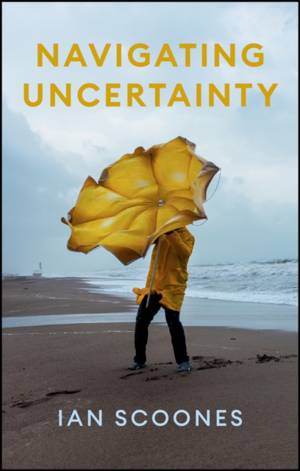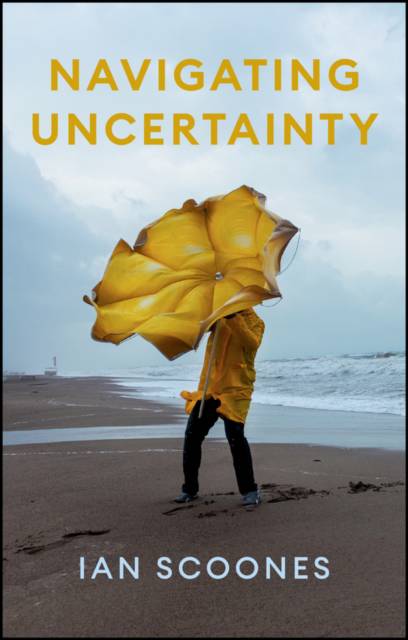
- Afhalen na 1 uur in een winkel met voorraad
- Gratis thuislevering in België vanaf € 30
- Ruim aanbod met 7 miljoen producten
- Afhalen na 1 uur in een winkel met voorraad
- Gratis thuislevering in België vanaf € 30
- Ruim aanbod met 7 miljoen producten
Zoeken
€ 112,95
+ 225 punten
Uitvoering
Omschrijving
Uncertainties are everywhere. Whether it's climate change, financial volatility, pandemic outbreaks or new technologies, we don't know what the future will hold. For many contemporary challenges, navigating uncertainty - where we cannot predict what may happen - is essential and, as the book explores, this is much more than just managing risk. But how is this done, and what can we learn from different contexts about responding to and living with uncertainty? Indeed, what might it mean to live from uncertainty?
Drawing on experiences from across the world, the chapters in this book explore finance and banking, technology regulation, critical infrastructures, pandemics, natural disasters and climate change. Each chapter contrasts an approach centred on risk and control, where we assume we know about and can manage the future, with one that is more flexible, responding to uncertainty.
The book argues that we need to adjust our modernist, controlling view and to develop new approaches, including some reclaimed and adapted from previous times or different cultures. This requires a radical rethinking of policies, institutions and practices for successfully navigating uncertainties in an increasingly turbulent world.
Drawing on experiences from across the world, the chapters in this book explore finance and banking, technology regulation, critical infrastructures, pandemics, natural disasters and climate change. Each chapter contrasts an approach centred on risk and control, where we assume we know about and can manage the future, with one that is more flexible, responding to uncertainty.
The book argues that we need to adjust our modernist, controlling view and to develop new approaches, including some reclaimed and adapted from previous times or different cultures. This requires a radical rethinking of policies, institutions and practices for successfully navigating uncertainties in an increasingly turbulent world.
Specificaties
Betrokkenen
- Auteur(s):
- Uitgeverij:
Inhoud
- Aantal bladzijden:
- 224
- Taal:
- Engels
Eigenschappen
- Productcode (EAN):
- 9781509560073
- Verschijningsdatum:
- 7/10/2024
- Uitvoering:
- Hardcover
- Formaat:
- Genaaid
- Afmetingen:
- 137 mm x 206 mm
- Gewicht:
- 408 g

Alleen bij Standaard Boekhandel
+ 225 punten op je klantenkaart van Standaard Boekhandel
Beoordelingen
We publiceren alleen reviews die voldoen aan de voorwaarden voor reviews. Bekijk onze voorwaarden voor reviews.











